Other
Harvard College: Teaching Students to Ask Their Own Questions
An article, written by two Harvard scholars, provides six steps to help students formulate questions.
ReadWriteThink
Read Write Think: History Comes Alive: Developing Fluency and Comprehension
Let the power of imagination and inference serve as a "time machine" to bring Benjamin Franklin into the classroom! History and science come to life in a dialogue with Franklin the inventor, developed through lesson activities that...
ReadWriteThink
Read Write Think: Student Led Book Clubs Using Qar
Contains plans for lessons that use the Question-Answer Relationships (QAR) strategy in book discussion groups. In addition to objectives and standards, this instructional plan contains links to sites used in the lessons as well as...
ReadWriteThink
Read Write Think: Questioning a Comprehension Strategy for Small Group Reading
Contains plans for three lessons about asking the right questions while reading. After the teacher explains the difference between factual and inferential questions, middle schoolers practice using them in small-group guided reading. In...
ReadWriteThink
Read Write Think: Seuss and Silverstein: Posing Questions, Presenting Points
Contains plans for four lessons that ask students to formulate critical thinking questions and lead class discussions about the issues raised in the books of Dr. Seuss and Shel Silverstein. In addition to objectives and standards, this...
ReadWriteThink
Read Write Think: Applying Question?answer Relationships to Pictures
Contains plans for two lessons that develop students' ability to ask questions about the pictures in a text. In addition to objectives and standards, this instructional plan contains links to sites used in the lessons as well as...
PBS
Pbs Mathline Lesson: Mix It Up [Pdf]
A instructional activity based on the story, "Oliver's Fruit Salad," where students explore the concept of proportional reasoning through modeling, student sharing, and questioning. A great introductory instructional activity for this...
Austin Independent School District
Austin Independent School District: Questioning the Author [Pdf]
Improve reading comprehension by using the reading strategy of Questioning the Author. Explains the strategy with scripted examples of the strategy in action, ideas for implementation, research behind the strategy, and more.
ReadWriteThink
Read Write Think: Guided Comprehension: Self Questioning
Online lesson plan introduces students to the concept of self-questioning, assisting them in an understanding of question-answer relationships that should improve their reading comprehension skills. In-depth study will lead to improved...
Other
Youth Learn: The Key to Engaging Students in Learning: Asking Good Questions
Explanation of several types of questions, and suggestions for helping students use good questioning techniques in inquiry-based learning. SL.9-10.1c Active Partic
Association for Supervision and Curriculum Development (ASCD)
Ascd: The Right Questions
Learn the Question Formulation Technique to help students express their thinking without having to depend on teacher questioning to peak their curiosity. There are 6 steps and examples of use in the classroom.
ReadWriteThink
Read Write Think: Searching Informational Texts
Online lesson allows elementary students to use prior knowledge, make predictions, and perform research on the Internet. Labeled "The Frog Beyond the Fairy Tale Character," lesson challenges students to examine print and online texts...
Other
Into the Book: Questioning
Learn the significance of questioning in the classroom to teach students how to question the text in order to better understand what they are reading.
ReadWriteThink
Read Write Think: Reading Informational Texts Using the 3 2 1 Strategy
Students can count on using the 3-2-1 strategy to help them successfully comprehend and write about an informational text.
ReadWriteThink
Read Write Think: Digging Up Details on Worms: Using Science in an Inquiry Study
A lesson plan based on a study unit of earthworms, using the inquiry model to integrate scientific processes with literacy practices. Instruction plans, related resources, and standards are included.
ReadWriteThink
Read Write Think: Weather: A Journey in Nonfiction
Questions about weather clear up when young scholars use what they learned from their books to create a presentation to share with the rest of the class.
Read Works
Read Works: Snowflake Bentley
[Free Registration/Login Required] In this ReadWorks read aloud lesson, students will describe Bentley's environment and his interactions with it. Students will evaluate the impact a person's environment can have on life. Then students...
Read Works
Read Works: Grade 2: Two Lesson Unit: Explicit Information
[Free Registration/Login Required] Designed to teach students to identify explicit information in nonfiction and fiction texts. Lessons are based on the books Deserts (A True Book-Ecosystems) by Darlene R. Stille and The Stories Huey...
Texas Education Agency
Texas Gateway: Generate Ideas and Questions
Learn strategies to help you generate questions and ideas about a topic.
Other
A More Beautiful Question: How Can We Teach Kids to Question?
This article discusses how to guide students in developing good questions, improving them, prioritizing their questions, acting on them, and reflecting on their learning. The writer is the author of books on questioning skills. Includes...
Lumen Learning
Lumen: Success Skills: Critical Thinking
This lesson focuses on critical thinking including a definition, examples, a video of critical thinking in action, logic in critical thinking, questions a critical thinker asks, guidelines for critical thinking, problem-solving, and...
Scholastic
Scholastic Teaching Resources: Nonfiction Notepads [Pdf]
From Just-Right Reading Response Activity Sheets for Young Learners, this graphic organizer can be used when students read informational texts. As responses to nonfiction, students will write the following on each notepad response:...
Reading Rockets
Reading Rockets: Building World Knowledge: Informational Text
Before, during, and after-reading ideas for introducing students to informational texts in the early-elementary grades in order to boost reading achievement through the upper-elementary grades.
Edutopia
Edutopia: 5 Ways to Help Your Students Become Better Questioners
The following blog gives techniques to encourage more questioning in the classroom environment.



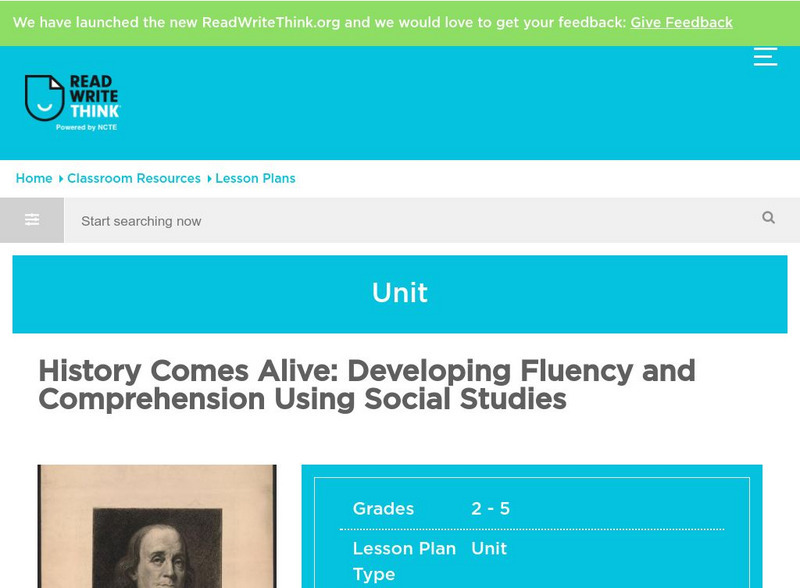




![Pbs Mathline Lesson: Mix It Up [Pdf] Lesson Plan Pbs Mathline Lesson: Mix It Up [Pdf] Lesson Plan](https://content.lessonplanet.com/knovation/original/114249-5c08953e64aa805320eac921a29839e3.jpg?1661409096)
![Austin Independent School District: Questioning the Author [Pdf] Article Austin Independent School District: Questioning the Author [Pdf] Article](https://d15y2dacu3jp90.cloudfront.net/images/attachment_defaults/resource/large/FPO-knovation.png)


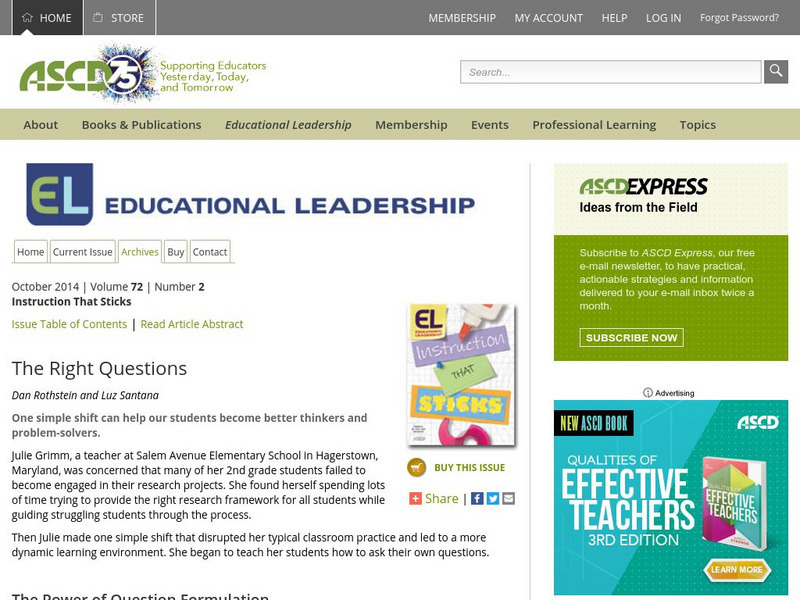




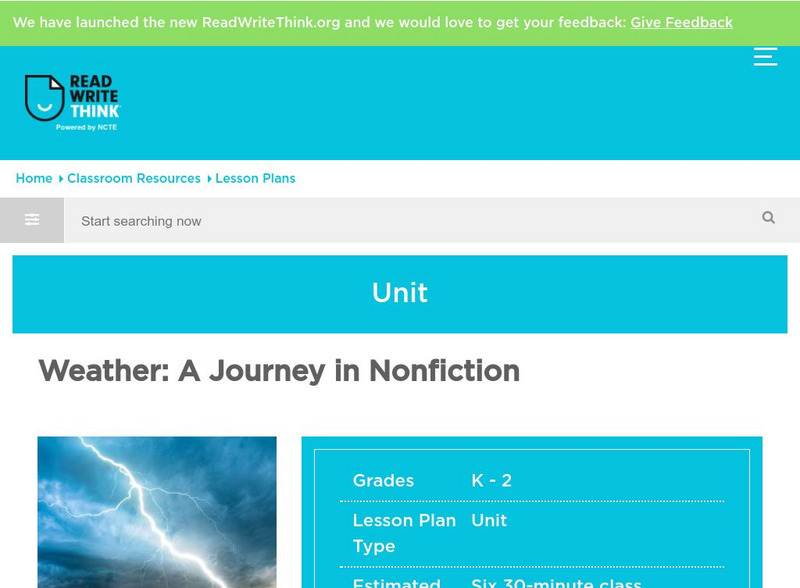

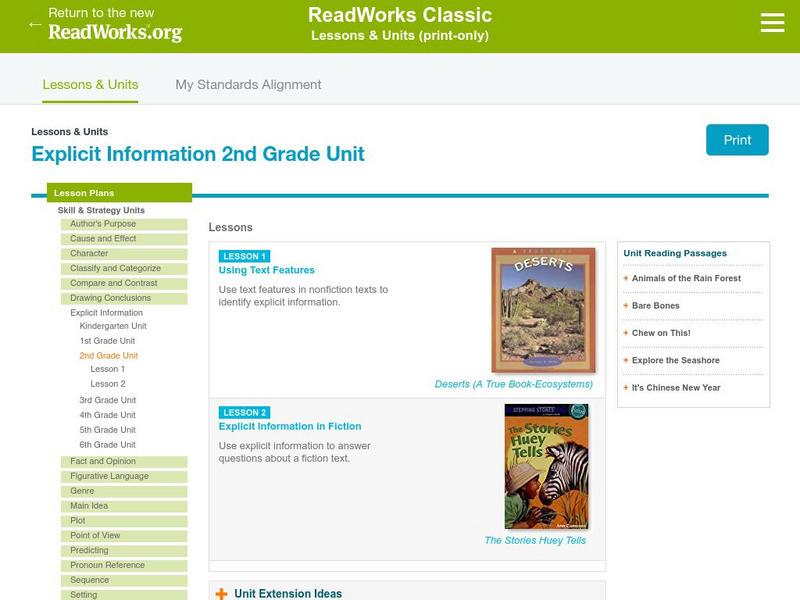


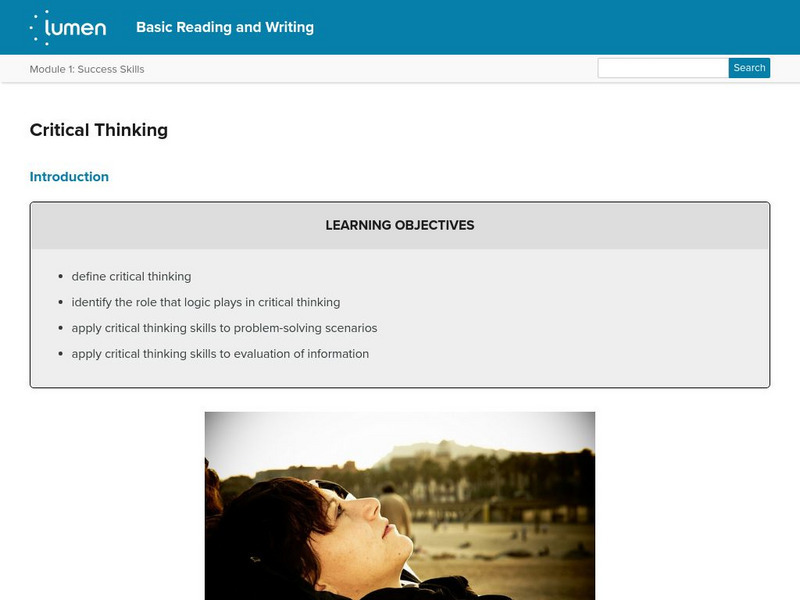
![Scholastic Teaching Resources: Nonfiction Notepads [Pdf] Graphic Scholastic Teaching Resources: Nonfiction Notepads [Pdf] Graphic](https://content.lessonplanet.com/knovation/original/360626-4d78344ceeaa140aeef2ac8672d73b35.jpg?1661510814)

